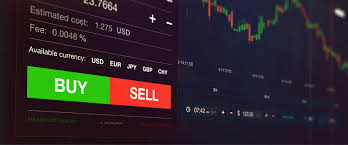Exploring Forex Trading Jobs Opportunities and Career Insights

The world of forex trading jobs is rich with opportunities for those looking to build a career in financial markets. With globalization and technological advancement driving the demand for forex transactions, the industry has seen significant growth. As a result, many firms are on the lookout for talented individuals to fill various roles. Whether you’re a seasoned trader or new to the market, understanding these opportunities can set you on a path to success. For more insights into trading, visit forex trading jobs trading-asia.com.
Introduction to Forex Trading Jobs
Forex trading, or foreign exchange trading, involves the buying and selling of currency pairs. The forex market is one of the largest and most liquid financial markets in the world, operating 24 hours a day across different time zones. This exceptional level of activity has created a plethora of job opportunities for individuals interested in this dynamic field.
Types of Forex Trading Jobs
There are numerous positions available within the forex trading sector, each requiring a unique set of skills and qualifications. Here are some key roles:
- Forex Trader: Responsible for executing buy and sell orders for currency pairs and managing portfolios to achieve profit margins.
- Forex Analyst: Analyzes market data to forecast future movements in currency prices, guiding trading decisions.
- Risk Manager: Focuses on identifying and mitigating risks associated with forex trading activities.
- Compliance Officer: Ensures that the trading practices adhere to governmental regulations and internal policies.
- Sales and Trading Assistant: Provides support to traders, including administrative tasks and coordination of trading activities.
Required Skills for Forex Trading Jobs
To excel in forex trading jobs, candidates typically need a strong foundation in finance, mathematics, and economics. Additionally, specific skills that are beneficial include:
- Analytical Skills: The ability to analyze market trends and data is crucial for making informed trading decisions.
- Technical Skills: Familiarity with trading platforms and software, as well as technical analysis tools.
- Communication Skills: Essential for relaying information and collaborating with team members.
- Attention to Detail: Precision in trading can significantly impact profits and losses.
- Decision-Making Abilities: Quick and sound decision-making is crucial in the fast-paced forex market.
Educational Background

While some individuals may enter the forex trading industry without formal education, a relevant degree significantly enhances employability. Common educational backgrounds include degrees in finance, economics, business administration, or mathematics. Additionally, professional certifications, such as Chartered Financial Analyst (CFA) or Certified Financial Planner (CFP), can provide a competitive edge in the job market.
Gaining Experience in Forex Trading
For those new to the industry, gaining experience is critical. Many aspiring forex traders start by practicing with demo accounts on trading platforms. This allows them to familiarize themselves with trading strategies and market dynamics without risking real money. Internships and entry-level positions in financial institutions provide valuable exposure and networking opportunities.
How to Find Forex Trading Jobs
Job seekers can find forex trading positions through various channels, including:
- Online Job Portals: Websites like Indeed, Glassdoor, and LinkedIn frequently list such opportunities.
- Networking: Attending finance conferences and industry events can connect job seekers with hiring managers and other professionals.
- Recruitment Agencies: Some agencies specialize in financial services and can help candidates find suitable positions.
- Company Websites: Visiting the careers section of forex trading firms can unveil openings directly.
Tips for a Successful Career in Forex Trading
Building a successful career in forex trading requires dedication and continuous learning. Here are some actionable tips:
- Stay Informed: Keep up with international news and economic events that may influence currency values.
- Develop a Trading Plan: A well-structured trading strategy can minimize risks and maximize profits.
- Practice Risk Management: Only risk a small portion of your capital on any single trade to avoid significant losses.
- Seek Mentorship: Learning from experienced traders can provide insights and improve your trading skills.
Conclusion
In conclusion, the forex trading industry offers vibrant job opportunities for individuals looking to excel in finance. Whether it’s as a trader, analyst, or in other supportive roles, there is potential for career growth and development. By acquiring the right skills, gaining experience, and staying updated on market trends, candidates can successfully navigate their way through the forex trading landscape. With dedication and strategic planning, a fulfilling career in forex trading is indeed attainable.